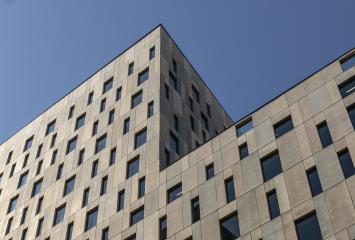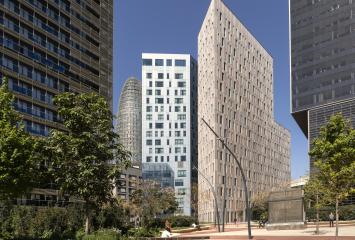How to Deal with the Post-Vacation Blues at the Office
Vacation from work is a basic right in Spain with a clear objective: to allow people to enjoy quality time for personal growth, and to disconnect from the work environment and recharge their batteries. However, many people don't feel rested and relaxed at all upon returning to work after a vacation. Psychologists call this the post-vacation blues, which affects about 41% of Spaniards, especially those who return after more than three weeks on vacation. The question is, how do you know if you have the post-vacation blues?
Symptoms of the post-vacation blues
As with so many other mood conditions, the post-vacation blues syndrome is associated with a wide range of symptoms, but all of them do not necessarily occur when the condition exists. According to the Cepsim psychology clinic in Madrid, these symptoms include low mood, lack of motivation, difficulty concentrating, general fatigue, acute stress, sudden changes in appetite, insomnia, irritability, muscle aches and signs of anxiety such as palpitations, increased heart rate and nervousness. All of this is apparently brought about by two key circumstances. We take a look at these circumstances below:
Causes of post-vacation blues
Since it was only recently identified, the post-vacation blues syndrome is not covered in the Diagnostic and Statistical Manual of Mental Disorders. However, experts at Clínica Universidad de Navarra believe that the condition is related to disruptions in biorhythms and the absence of motivation. In their own words, "people need a routine that is in line with their particular biorhythms" and vacation is a break in the routine that creates havoc with the cycle in which we which we wake up, function and rest. Furthermore, our essential priorities completely change.
Dealing with post-vacation blues
All of the above makes it clear that the best strategy to avoid this condition is to maintain a routine while on vacation that is consistent with the normal one and therefore with your own biorhythms. It is also important to set aside time while on vacation for less passive activities that require effort and commitment, as this will help maintain personal motivation levels. However, it is also clear that this is complicated. The Christmas holidays, for example, are very tumultuous and it is hard to find such an important balance. In any event, efforts to prevent it should continue once the holidays are over.
Continue with vacation activities
Once you have returned to work, you may not be able to continue some of the activities you engaged in while on vacation. Perhaps this is for economic reasons. Or time. Or location. But there are always other activities that can be continued. The idea is to make the transition back from the freedom of vacation to the hectic work routine somewhat easier. The best example of such activities is sports. Going for a run or training every day establishes continuity in the brain. It helps it to situate itself.
Maintain priorities
According to the Clínica Universidad Clinic de Navarra, one of the main triggers of the post-holiday blues is the loss of motivation resulting from changes to established priorities. On vacation, the priority is fun and human interaction, while your responsibilities are what take precedence at work. And that is how it should be, but it is important to include both. Not only to prevent the blues but because fun, human interaction and the pursuit of new challenges at work are good for everyone.
Be mindful of the office environment and its design
Some office environments boost motivation. They are intended to promote well being, are built with natural materials and filled with greenery. Companies should strive to create biophilic spaces that mitigate the clash between the freedom of vacation and the routine of work. For employees, a more effective arrangement of desks and everything else they have control over in the office will also help reduce the psychological stress.
Start with the most affordable
Most jobs consist of performing more than one task. Often many different tasks. And some are more demanding than others, depending on the individual. The idea of the experts, in this case Cepsa, is to start with the easiest tasks during the first days back to the office and then gradually increase the difficulty. This is not always possible, and certainly requires an arrangement with the company, but it is more productive for the company than putting an employee through the post-vacation blues syndrome.
Find support within the office
Negative post-vacation feelings are shared to some extent by almost all office employees. And that includes executives. Hence the importance of dialog and trust. This is key for human-centric companies. Having breakout spaces such as terraces, rooftops or patios in which to chat with other human beings and find understanding and support is essential for recovery. Ultimately it's all about people. They are always the solution.
[Trad 11]Cuidado, en el original en español habéis puesto “Cepsa”

